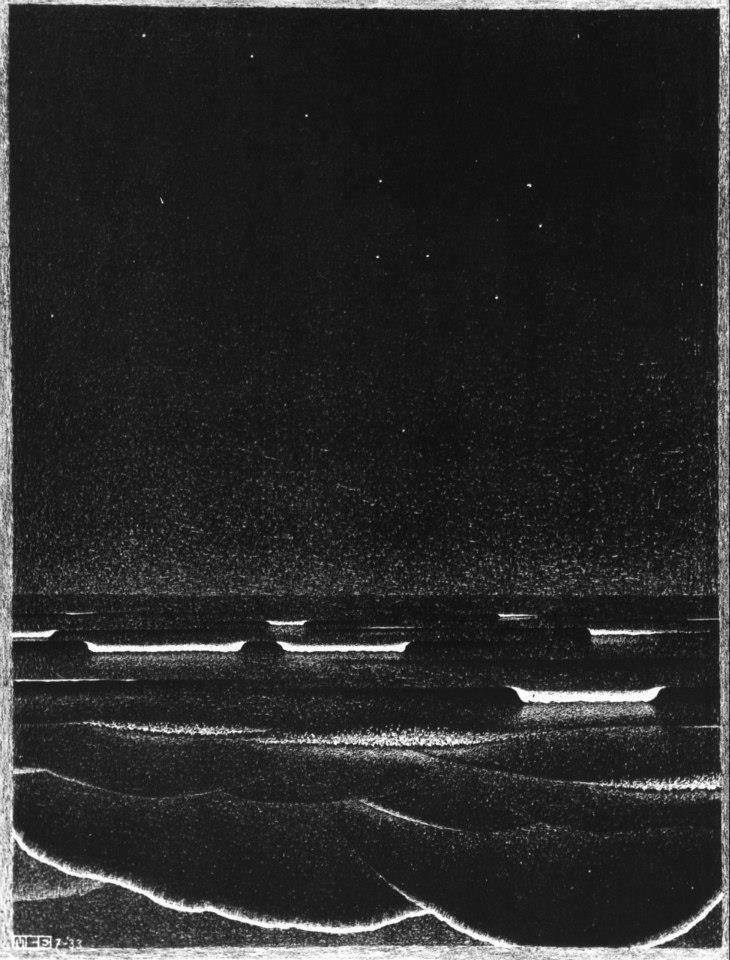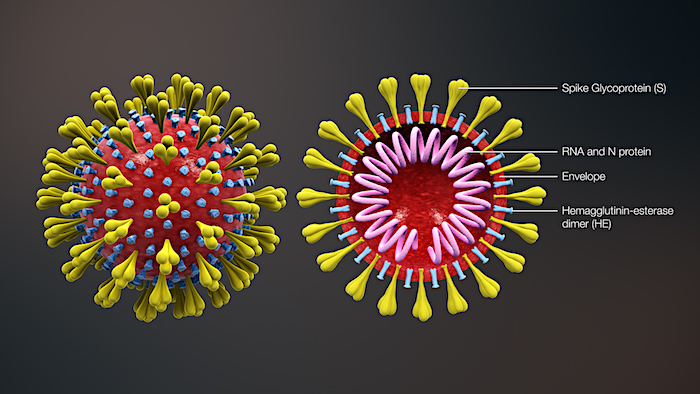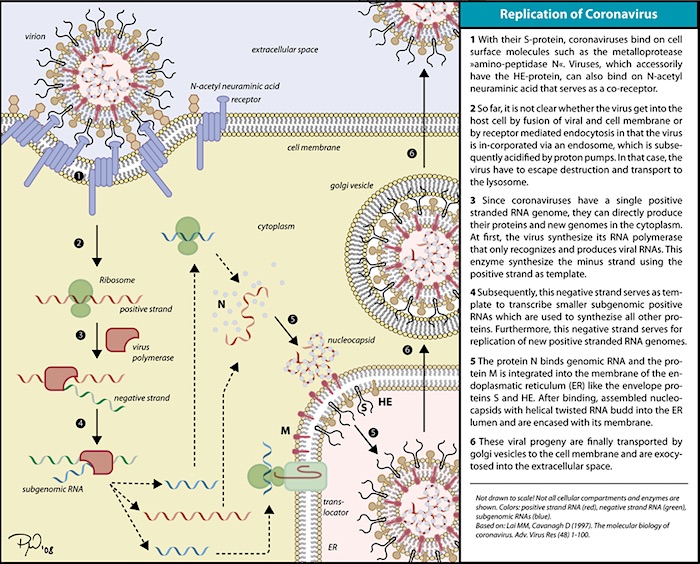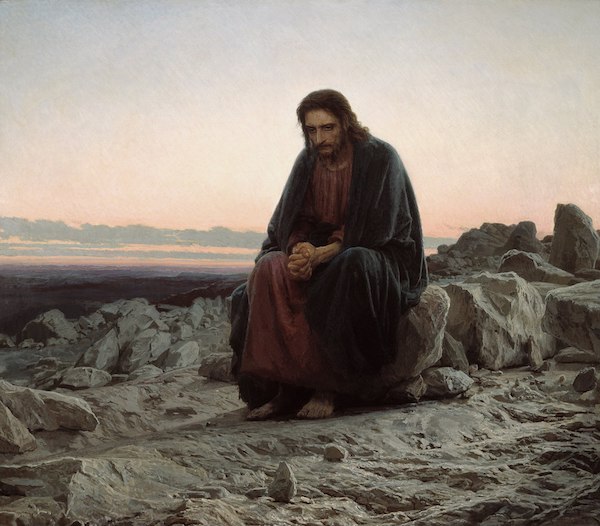
M.C. Escher Fluorescent sea 1933
It’s a little amusing, though that word may not fit the topic, to see how people react to the 2019-nCoV (Wuhan coronavirus) “epidemic” that appears to have started in the city of that name. It’s understandable that people compare the warnings about it to those about for instance SARS (also a coronavirus, so either call this one 2019-nCoV or “Wuhan coronavirus”), and conclude that since that episode was not so bad, neither will this one be, but that’s certainly not the definitive story.
If only because stating that the world is due for a large-scale epidemic, a pandemic, is not some scare-mongering exercise, it’s basic statistics and broadly recognized. The last really big one is over 100 years ago. The Spanish flu of 1917-1918 killed an estimated 50 million people, more than WWI which took place from 1914-1918, and saw an estimated 40 million fatalities.
(Un)predictability is key: Adolfo Garcia-Sastre, director of Global Health and Emerging Pathogens Institute at the Icahn School of Medicine in New York City says: “There is no good way to predict [when a flu pandemic will occur], but “this is something that happens every 10 to 40 years”. In essence, since a real flu pandemic hasn’t happened in 100 years, we’re overdue.
There are of course vast differences between today and 1918. But then again, these differences may balance each other out to an extent: on the one hand: 1) medical science has made enormous progress in the past 100 years. But on the other: 2) there are many more people, and they move around and come in contact with each other a lot more too.

Cross-sectional model of a coronavirus. Source:
Scientific Animations (CC BY-SA 4.0)
World population in 1918 was 1.8 billion; today it’s over 4 times that at 7.7 billion. Add increased mobility through planes, trains and automobiles -in the west and now China- and you will find the number of miles traveled and the number of people “met” per capita has probably gone up by a factor of 10 or more. Just what a virus wants: 10+ times more potential hosts.
The 2009 swine flu killed “only” 200,000 people. Not the “real thing”. SARS affected about 8,000 people and killed 774 in the early 2000s. Hardly even an epidemic, let alone a pandemic. MERS, another coronavirus, infected 186 people and with a death toll of 36. Small change in comparison.
But of course scientists are looking into the matter all the time. And, certainly compared to 1918, they have developed much more sophisticated models to do that, aided greatly by computing power. A simulation of a global pandemic that involves a coronavirus, developed late last year by scientist Eric Toner at the Johns Hopkins Center for Health Security, showed that 65 million people might die within 18 months in such an event.
A more recent model was developed by a team led by Hong Kong University’s medicine dean Gabriel Leung:
The Coronavirus outbreak doubles every 6.2 days [..] That figure validates the forecast of top virologists who claim that Coronavirus is ten times worse than SARS. Hong Kong University is ranked a top 25 college globally and houses the world’s top 1% scientists according to Thomson Reuters. Based on the model used by HKU, up to 150,000 individuals could be affected by Coronavirus in the next three to four months on a daily basis.
Leung’s team said that it confirmed transmission from humans to humans is already occurring in virtually every major city in China. By April to May, Leung said Beijing, Shanghai, Guangzhou, Shenzhen and Chongqing are likely to see widespread infections of Coronavirus, [before the number of infections could begin to gradually decline in June or July, Leung said.
As many as 44,000 people could be infected in Wuhan alone, with only 25,000 likely to be showing symptoms at this time..] Specifically, Leung noted that due to the close ties between Chongqing and Wuhan, Chongqing could see nearly 150,000 people affected per day at its peak.
Chongqing is sometimes presumed to be the world’s most populous city, with 30 million inhabitants, though data are somewhat opaque.
Leung, who sits on Chief Executive Carrie Lam Cheng Yuet-ngor’s advisory committee on the coronavirus, called for drastic measures to curb the spread of the virus. “Substantial, draconian measures limiting population mobility should be taken immediately,” he said, calling for the cancellation of mass gatherings, along with school closures and work-from-home arrangements.
He would undoubtedly also cancel all flights to and from Wuhan, and perhaps even all of China, as British Airways has already done, and as other airlines will be forced to follow suit.
Yesterday was the first day that the 2019-nCoV virus had infected over 1,000 new patients. And that’s in official numbers, those are the confirmed ones for a disease with a 2-week incubation period and an R0 rate (how many people are infected by each positive person) of 2.5 to 4. It was also the first day that more new cases were reported outside of Hubei province than inside it.
Scores of new countries were added to the list of those with confirmed cases. There are now 19: China, United States, France, Japan, South Korea, Taiwan, Singapore, Thailand, Australia, Nepal, Vietnam, Hong Kong, Macau, Malaysia, Canada, Cambodia, Sri Lanka, Germany and UAE (Finland was just added; now there’s 20). Moreover, several of these countries have confirmed human-to-human transmission.
Still, while Hong Kong University’s Gabriel Leung estimates the 2019-nCoV peak at late April-early May 2020, Chinese respiratory diseases expert Zhong Nanshan, echoed by Gao Fu, the director of the Chinese Centre for Disease Control and Prevention, said the peak would be reached in 10 days.

Infection cycle of a coronavirus
The WHO is, as I speak, burying China in compliments for its efforts to control the disease. Which is fine, and likely more constructive than criticism, but we’ve all been able to see the footage of dead and dying people in the corridors of Wuhan hospitals. And we know China’s history on SARS reporting. Beijing is worried sick by now, but the CCP’s biggest worry will always remain power and control. The Hong Kong protests have only enforced that attitude.
But who are we to criticize China anyway? In our own countries, the main concern in the media is still about the economic effects of what may or may not become a pandemic. “It’s going to hurt global trade, it’s going to hurt our economy, woe, woe..” As if it’s such a disaster that for a few months fewer non-essential goods are schlepped halfway across the globe. That period is likely too short for us to realize than we would do good to produce at least essential goods closer to home. The main concern is money, not that 132 people have died and many more will soon. Those are our priorities.
For a bright light to hit home upside our heads that we would actually notice, that would make us take a look at ourselves, we would need a real bad pandemic. Or we will not learn that we should not need a pandemic to realize we should take care of ourselves, our own basic needs, and not let someone 10,000 miles away do that.
As for fewer airline bookings or Louis Vuitton or Apple sales, if that’s your priority, maybe you’re overdue a lesson no matter what. A lesson about what your society needs to survive, vs what are extras, luxuries, added benefits. We seem to have lost comprehension of that difference entirely.
Summary: no panic, but vigilance. Same as every other day. And not too much focus on money and profits. 2019-nCoV doesn’t care about those either. In 2020, with all the resources at our disposal, and with 1918 to guide us, we should be able to see these things coming from miles away, and not need any time to respond. It should be no more than flicking a switch.
Now it’s like: but where will our food come from, and our iPhones? We should have the answers to such questions ready at all times, or we have failed as societies. Maybe someone’s holding up a mirror to us.
A question I can’t resist is: Are we better prepared today than people were in 1918? And I can’t give you the answer. I know we should be with all the wealth and resources and available energy we’ve added, but I can’t.

The Automatic Earth needs your support in 2020. Please consider a donation on Paypal and Patreon.








